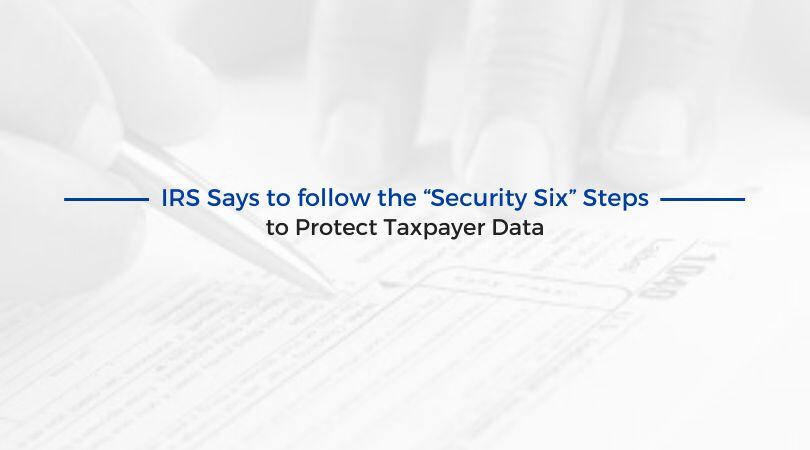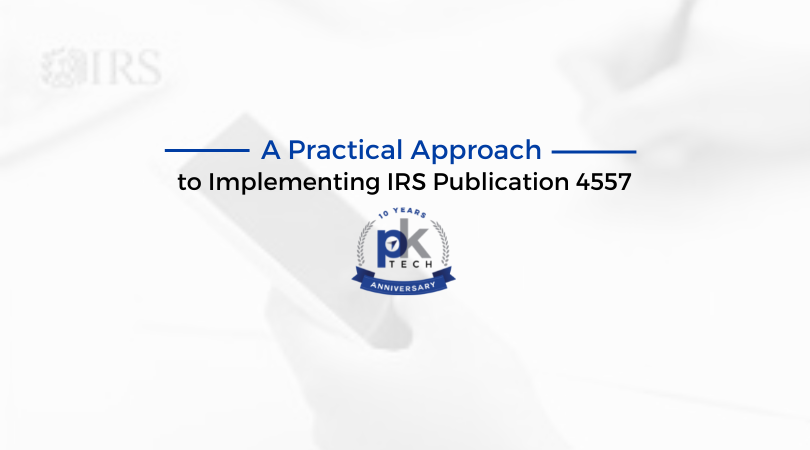IRS Now Requires Multi-Factor Authentication
With the news full of stories of digital security breaches and ransom payments, the IRS is taking action. As the repository of taxpayer information,...
-2.jpg)
If your curiosity tricked you into clicking this blog open, we’re happy you’re here. This is not a clickbait topic – this is a topic that is vital for business owners and individuals to know about. A lesser-known term, an “IRS Identity Protection PIN,” is something everyone should take advantage of for personal and business security.
So, let’s dive in — everything you need to know about an IRS Identity Protection PIN and how to get one.
If you made it this far, let’s start with the obvious. What is an IRS Identity Protection PIN? An identity protection PIN (IP PIN) is a six-digit number that prevents someone else from filing a tax return using your Social Security number (SSN) or individual taxpayer identification number (ITIN). The IP PIN is known only to you and the IRS. It helps us verify your identity when you file your electronic or paper tax return. Even though you may not have a filing requirement, an IP PIN still protects your account.
If you don’t have an IP PIN, you can proactively get one to prevent tax-related identity theft. Anyone with an SSN or an ITIN can obtain an IP PIN, even if you live abroad.
The fastest way to receive an IP PIN is to request one through your Online Account. You will be required to register an account on IRS.gov if you don’t already have one to validate your identity. Please note that to improve security, the IRS now requires multi-factor authentication for these online accounts.
Spouses and dependents are eligible for an IP PIN if they pass the identity verification process. Once you have opted in and obtained an IP PIN online, you will need to retrieve your IP PIN online each calendar year. CP01A Notices are not automatically mailed.
Once you have your pin, IP PINs are available in your online IRS.gov account starting in mid-January through mid-November each year.
You can request your IP PIN here.
Once you have your six-digit IP PIN, you can enter it when prompted on your tax software product or provide it to your tax professional preparing your tax return.
The most significant benefit of an IP PIN is that it stops criminals from filing fraudulent returns on your behalf. Without an IP PIN, and in the event of a fraudulent return submission, an illegitimate tax preparer would be unable to submit a return in your name. IP PINs prevent this fraudulent activity.
In the event you are a victim of tax-related identity theft, and the IRS has resolved your tax account issues using your IP PIN, the IRS will issue you a new number.
Every day, criminals are preparing fraudulent tax returns and filing them. These returns are put into the queue to get processed before you file your legitimate return.
If the fraudulent return is processed first, criminals can collect refunds on your behalf and create issues with your legitimate tax return. These issues can follow you for months or even years as you work with the IRS to resolve them.
All of this can be stopped by acquiring a simple IP PIN. Fraudulent returns will not be accepted without the IP PIN you create. It’s an extra layer of verification and protection beyond your SSN.
SSN and tax return fraud are just two types of common identity theft. Criminals are after your identity in the pursuit of money. When it comes to tax returns, they’re after your monetary refunds issued by the IRS.
Luckily, the IRS had the forethought to create an additional system to help individuals and businesses protect themselves from this all-too-common form of identity theft. If you are not currently taking advantage of the IP PIN system, get started today. Register for an IP PIN here.
If you are concerned your business has been a victim of identity theft or if we can support the IT security needs of your business in any way, let’s chat. As a managed IT service provider, PK Tech is proud to offer 15 years of experience with a focus on CPA firms. We boast AICPAs SOC 2 Type II attestation, proving via third-party audit by an independent CPA firm that we passed a rigorous and comprehensive assessment of our security and privacy controls. Schedule a time to chat with our team here.
-4.jpg)
With the news full of stories of digital security breaches and ransom payments, the IRS is taking action. As the repository of taxpayer information,...

In an era dominated by digital transactions and interconnected systems, the protection of taxpayer data has become paramount. Ensuring the...

With tax season in full swing, it seems fitting to review the importance of IRS Publication 4557. For those not in the work of tax, it may be...